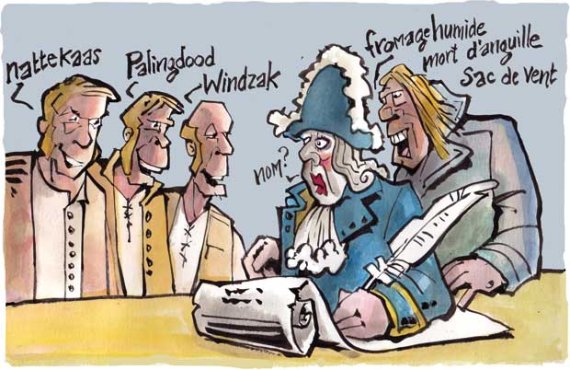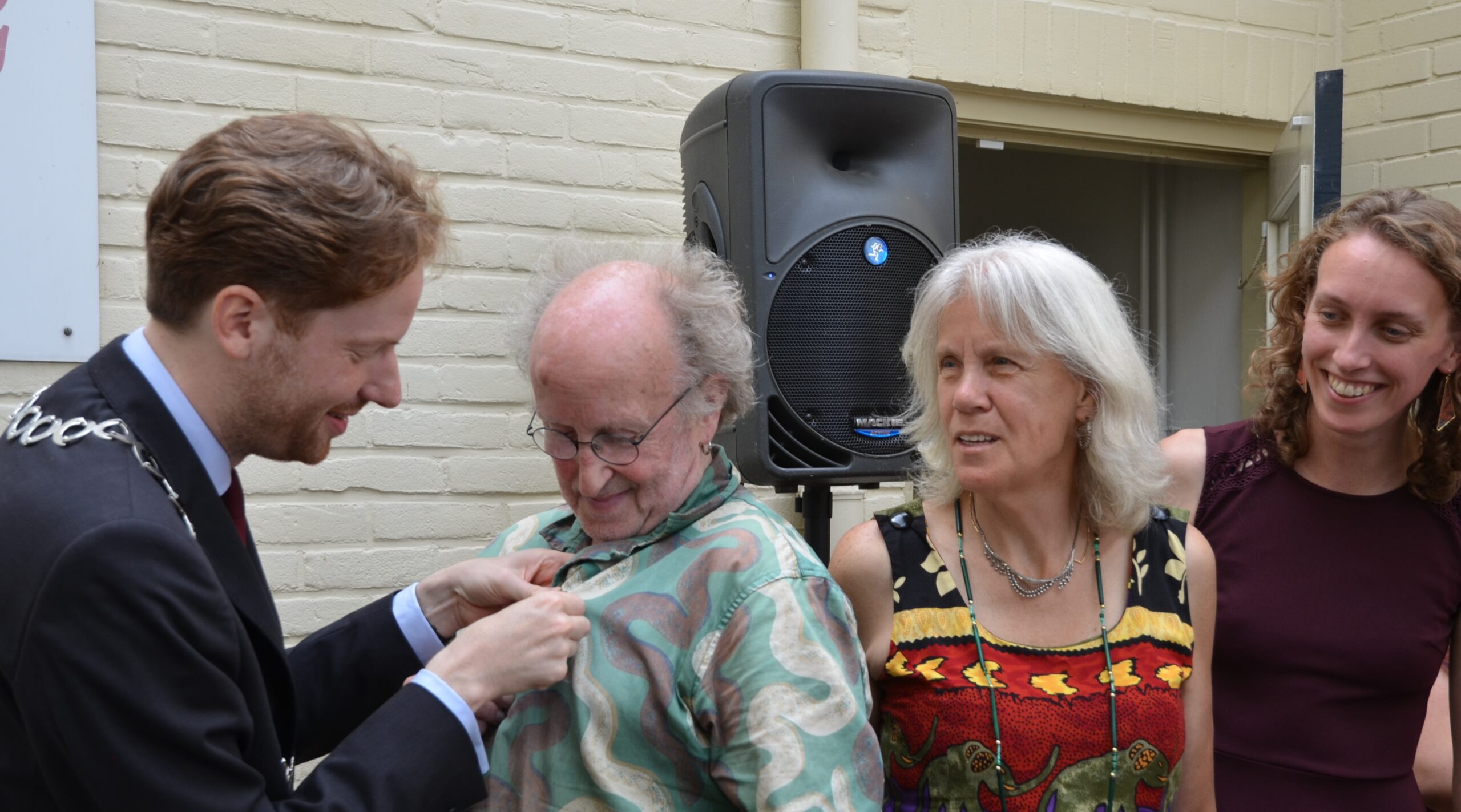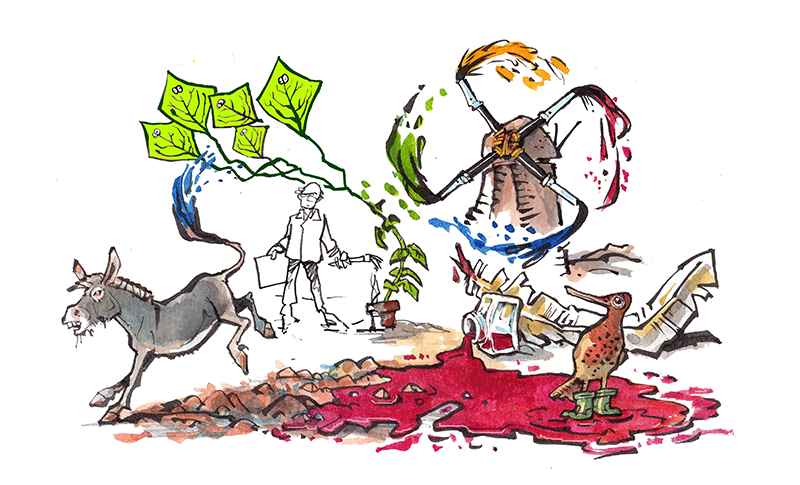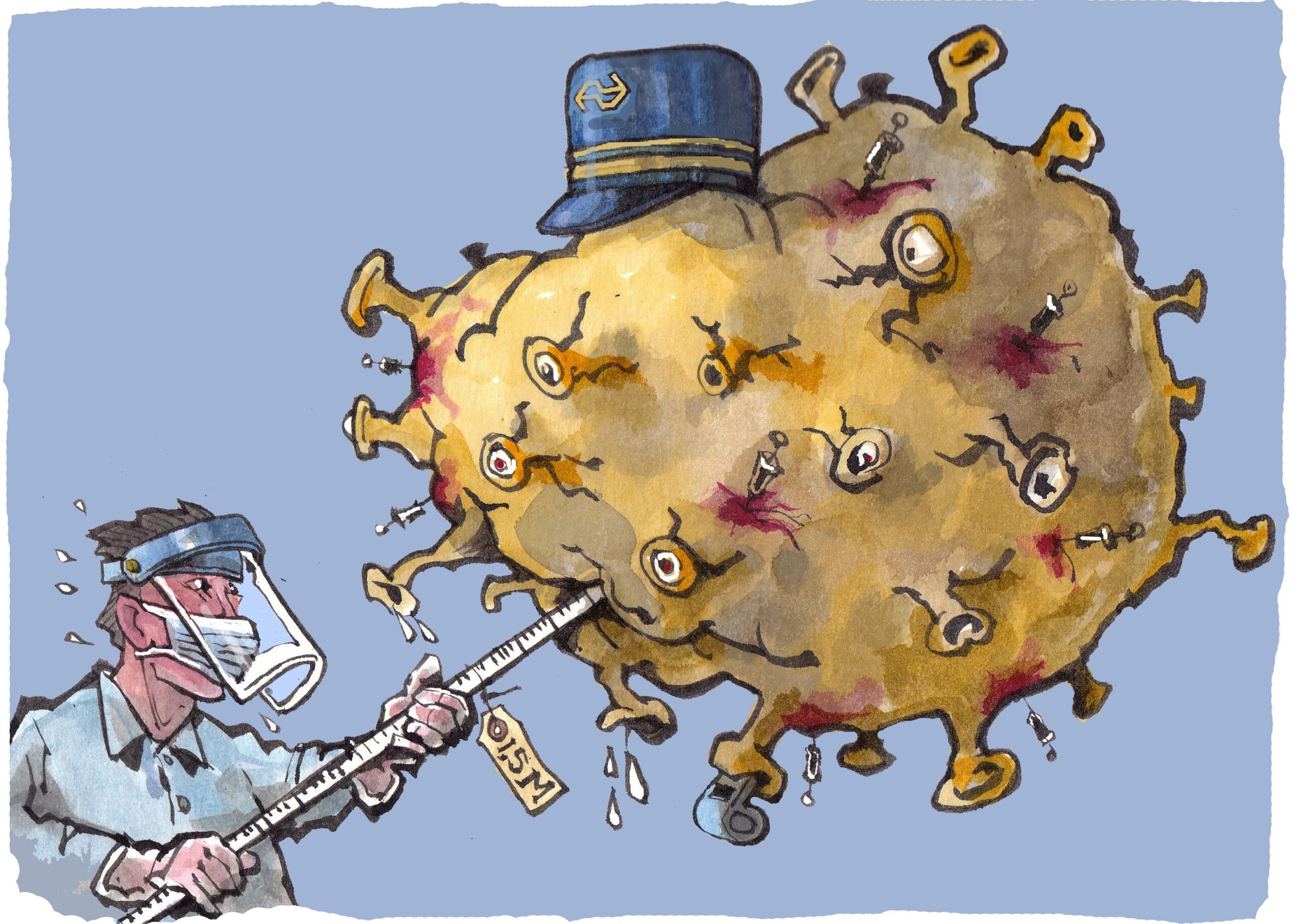It was fascinating and for a brief moment I wondered how on earth they can have names with meanings like this, especially in the light of the culture I come from where people always take care when giving names as they should have nice meanings and attributes. Many modern Kashmiri names are inspired by crafts or express virtues like piety and honesty. Examples are Vani (A petty shopkeeper), Dhar (strongman), Khwaja (Lord) and Sadhu (Hindu)/Pir (Muslim). People give names very seriously as they believe names have a serious effect on your personality and also identify who you are.
So, what’s the story with Dutch surnames? In 1811, the French, under Napoleon, occupied the Netherlands. They started a census for taxation purposes and forced everyone to have a family name, which was not a common practice for the Dutch, who thought this would be a temporary measure, and took on comical or offensive-sounding names as a practical joke on their French occupiers. This may not be true in all cases as there are names that were aggrandizing rather than demeaning: De Groot (The Great). Van Dijk is another all-time favourite but boringly enough it refers to the Dutch preoccupation with keeping sea water out of their clogs rather than to the mother’s sexual preference. My personal favourite is Van den/der Berg (from/of the mountain) as I was born and raised in the Himalayas (Kashmir).
So I will probably consider using it as my surname henceforth. We can snigger at the Dutch names, but come on – not all Dutch names are so weird. Changing your name denotes insecurity, so, you choose: is it strength of character, or a ready wit that makes the Dutch quite proud of their surnames? Rashid Kazmi from Pakistan, PhD researcher in Plant Physiology.




